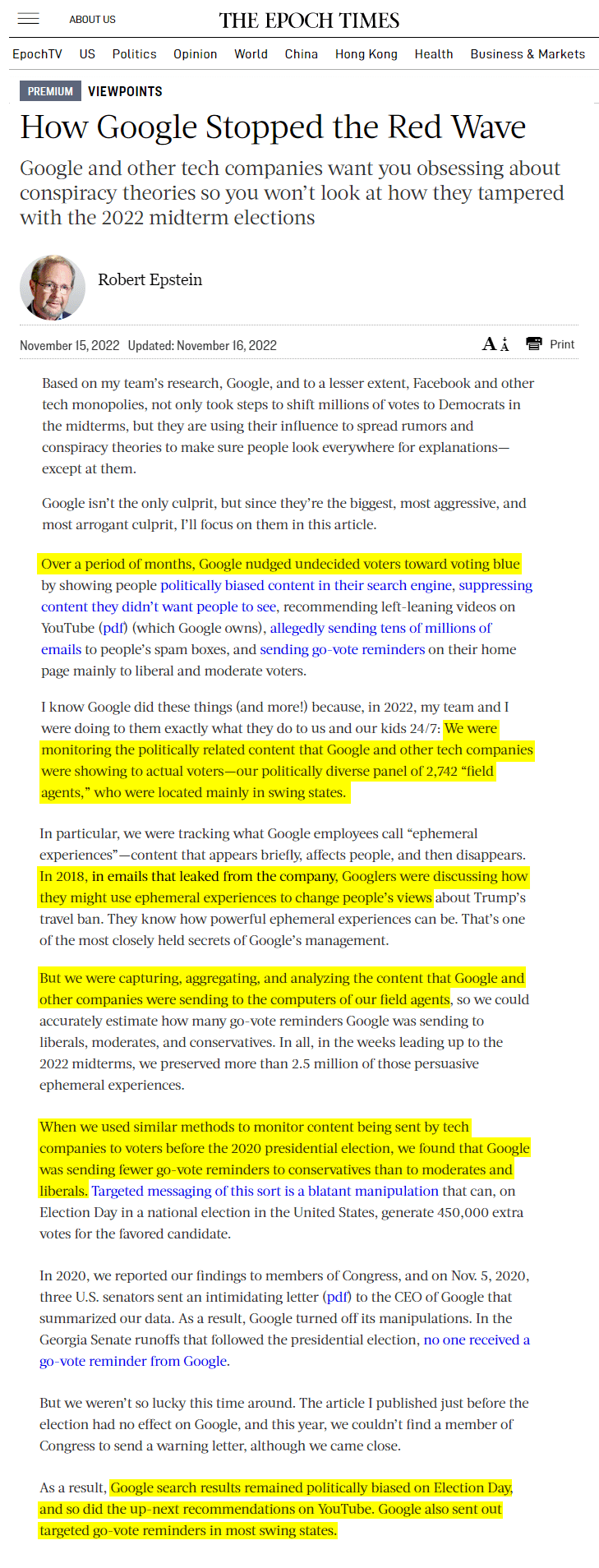See more posts from this researcher: Dr Robert Epstein
The researcher is a Democrat, a Hillary voter, and he has had enough of Big Tech monopolies manipulating the results of elections.

Source: https://archive.ph/mQ9kp
See more posts from this researcher: Dr Robert Epstein
The researcher is a Democrat, a Hillary voter, and he has had enough of Big Tech monopolies manipulating the results of elections.

Source: https://archive.ph/mQ9kp